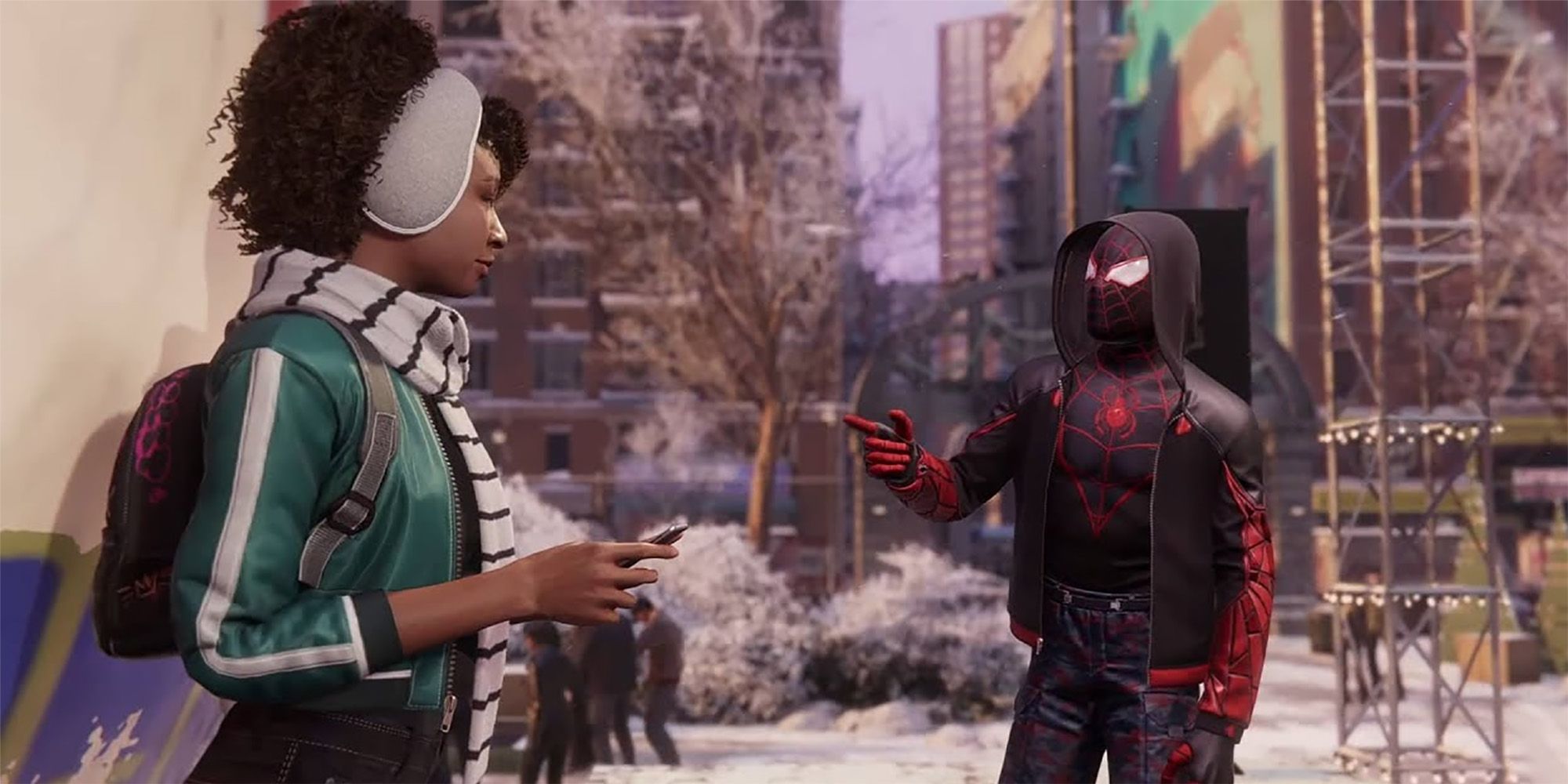Fans are raving about Spider-Man: Miles Morales. Despite wearing a suit similar to Peter Parker's, Miles is obviously his own brand of hero. As players have been able to explore the game, they're discovering even more reasons to love Miles than they could have ever imagined. Set in Spanish Harlem, Miles Morales offers much needed representation of ethnic minorities. However, that's not where the game stops in terms of inclusion, as fans have found that Miles is actually proficient in American Sign Language.
As Spider-Man mets up with original character Hailey Cooper for the side quest "We've Got a Lead," it quickly becomes apparent the street artist is deaf. The two launch into an involved conversation featuring accurate hand signs and narration, with Miles speaking as he signs.
Fans were incredibly excited by this discovery, with many claiming that this made them love the character even more. However, some did point out one issue with the scene. When using sign language, facial expressions and lip reading play an important role in the conversation, so the fact that Spider-Man is still wearing his mask while signing would make it difficult for Hailey to fully engage.
Still, including a deaf character (and even hinting that Miles may have a little crush on her) is just one more way Insomniac Games seems to be going out of its way to make inclusive games that represent players of different backgrounds and experiences. It is rare for video games to feature characters with disabilities -- and even rarer for them to do well -- something that has left some gamers feeling underrepresented.
Inclusivity and representation are a necessary part of being able to immerse oneself in a story, and nowhere is this more important than in video games. When a player can identify and sink into the role of a character they are playing or see themselves in their world, they can lose themselves in their experiences, personal relationships and activities. It is easier to become that character for the duration of the story, providing a more realistic and satisfying game overall.
The stereotypical hero in games tends to be a strong, white male, and while that's fine for players who can identify, there need to be stories that allow others to have the same experience of fully connecting and relating to the character they're meant to play. Gamers come from all genders, ethnicities, social and cultural backgrounds, and many have disabilities. Representation -- beyond stereotypes -- is necessary for providing all players with the reality-escaping experience they crave when launching a game.
Spider-Man: Miles Morales ticks off a lot of important boxes, increasing inclusivity and making it possible for all gamers to feel comfortable and welcome in Miles' world. Though Miles has yet to demonstrate knowledge of ASL in the comics, the fact that Insomniac included this detail in the game only serves to make him a friendlier and more appealing Spider-Man who is obviously willing to do whatever it takes to make the people in his neighborhood not just safe, but also comfortable being exactly who they are.


